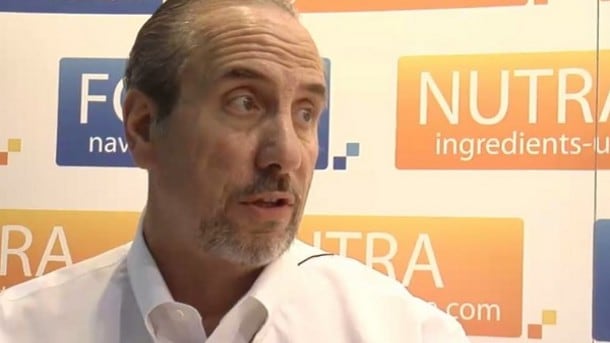Speaking to FoodNavigator-USA as part of our special edition on organics and non-GMO, BI Nutraceuticals CEO George Pontiakos said food companies needed to accentuate the positive, or they would remain on the back foot.
And instead of diverting inquiries from the media and consumers to faceless industry-association-backed websites and organizations (GMO Answers, Coalition for Safe Affordable Food), the big food brands and their leaders should respond directly to questions on this issue, he added.
Immediately rolling into a ball and capitulating if you get a little bit of pushback - that’s a mistake
“If you believe GMO products are safe and provide value you should be out there championing your position and swaying consumer sentiment,” said Pontiakos, who said he had no particular stake in the game as BI primarily sells botanical extracts - although he was getting more inquiries about non-GMO ingredients.
“I don’t think it’s too late to change the conversation, but a lot of these large corporations seem to be paralyzed with political correctness and don’t want to defend their position.
“Some food companies have made a decision to let the free market determine what’s important, which is fine. But if you genuinely believe GMO products are safe and beneficial... rolling into a ball and capitulating if you get a little bit of push back - that’s a mistake.”
I’ve yet to see a commercial from Monsanto or any other large company talking about the overall benefits of GM crops

He added: “The non-GMO activists have done a wonderful job of marketing their viewpoint to consumers, but I’ve yet to see a commercial from Monsanto or any other large company talking about the overall benefits of GM crops, the potential for water reduction, increasing the food supply, pesticide reduction, and that’s criminally negligent.”
Instead of talking about why labeling GMOs is a bad thing, they should pro-actively talk about why GM crops are a good thing, if that’s what they think, he said.
Whether it’s about reducing insecticide use (to kill pests/insects), or using less toxic herbicides (to kill weeds), tackling plant viruses and fungal diseases, growing crops with less water, reducing soil tillage, or producing crops with more nutrients, there are lots of angles to explore, he said.
“But they have not come out with any type of sustained marketing program that shoots from their side of the fence.”
USDA: The adoption of Bt crops increases yields by mitigating yield losses from insects. Farmers generally use less insecticide when they plant Bt corn and Bt cotton.
But how should firms address the sustainability debate over GM crops, given that anti-GMO groups say GM crops are bad for the environment, and pro-GMO groups say GM crops inflict less damage on the planet?

According to a recent independent report from USDA (click HERE), the data shows that pesticide spraying by farmers has dropped dramatically as a result of genetically engineered Bt crops, while yields have increased in some instances.
However, it also acknowledges that some farmers using GM crops engineered to be resistant to glyphosate (a more benign herbicide) are now using more of it than they used to and mixing it with other herbicides as weeds have started to become resistant to it.
The issue of weeds developing resistance to the popular herbicide of the day is hardly unique to GM crops
So does this mean we should throw out the GM baby with the bathwater?
Not according to biotech experts, who argue that the issue of weeds developing resistance to the popular herbicide of the day is hardly unique to GM crops; that the next generation of GM crops and herbicides is better; and that the 'super-weed' issue just serves of a reminder that farmers of all kinds need to do a better job of rotating crops and herbicides. (click HERE).
However, Brian John, a former lecturer in environmental sciences at Durham University, UK, told FoodNavigator-USA that a system that "depends upon heavy chemical inputs and an endless succession of technical fixes, with each fix designed to cope with problems caused by the last fix" is "crazy".
He added: “The industrial mono-cultures which we now see across vast swathes of countryside are environmentally destructive, involving ongoing damage to soil micro-organisms and also to non-target organisms in the wildlife food-chain."
GM farmers are trapped into technology use agreements with Monsanto et al

Asked whether "industrial monocultures” are simply a feature of modern, industrial scale farming- rather than GM agriculture per se, he said: “To some degree, yes, but GMO farming has exacerbated this trend…
“Because GM farmers are trapped into technology use agreements with Monsanto et al, many of them seem to have forgotten that rotations are possible - especially if that means taking a deliberate cut in income for the next year, with a crop that is less profitable.”
So is the answer switching to organic farming?
“Not necessarily," said John, "being mindful of the fact that organic farming is labor-intensive, and that conventional farming will in many places have to continue, but with much more respect for rotations and reduced chemical inputs.”
